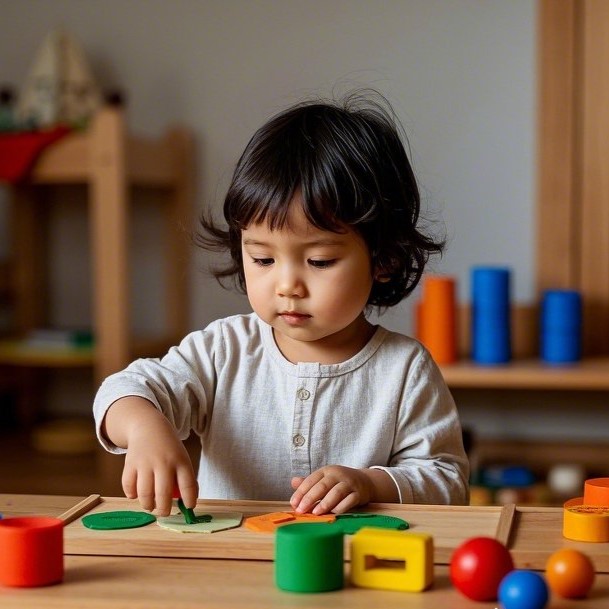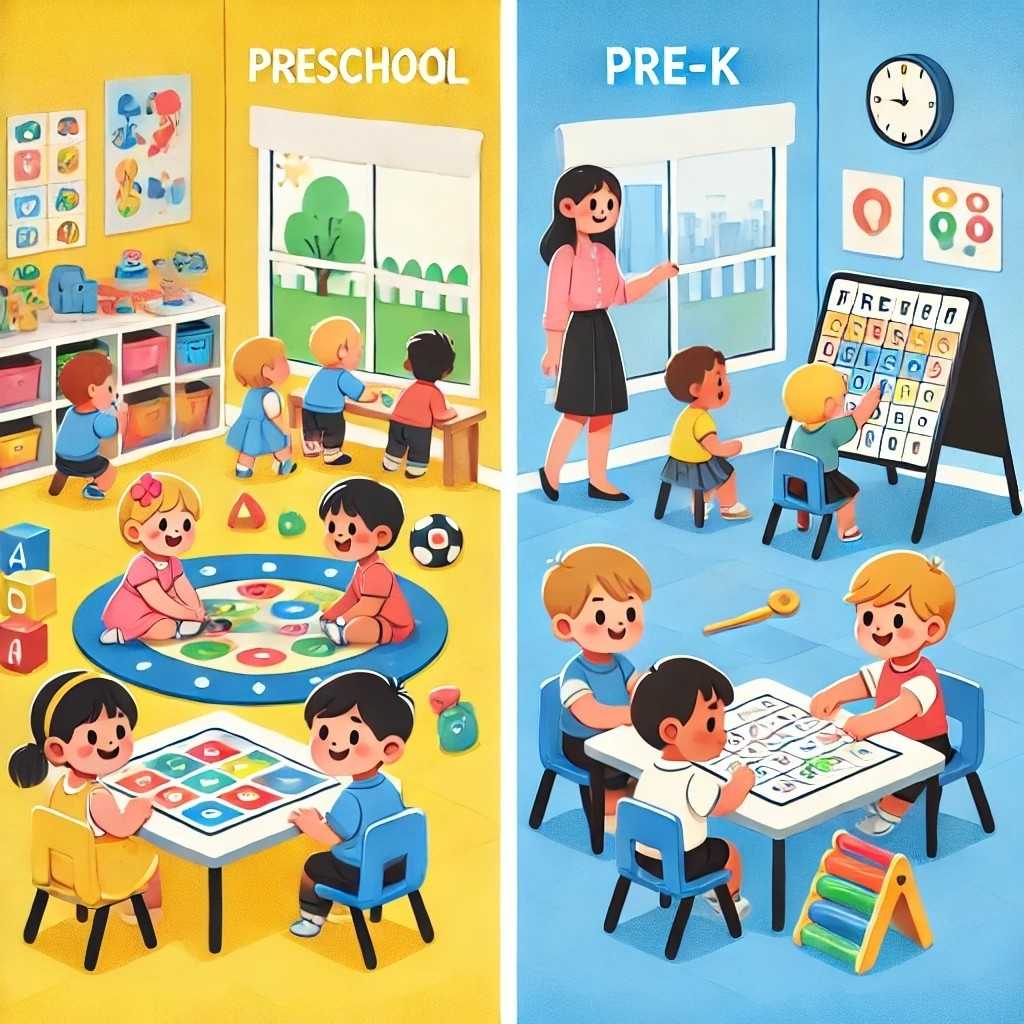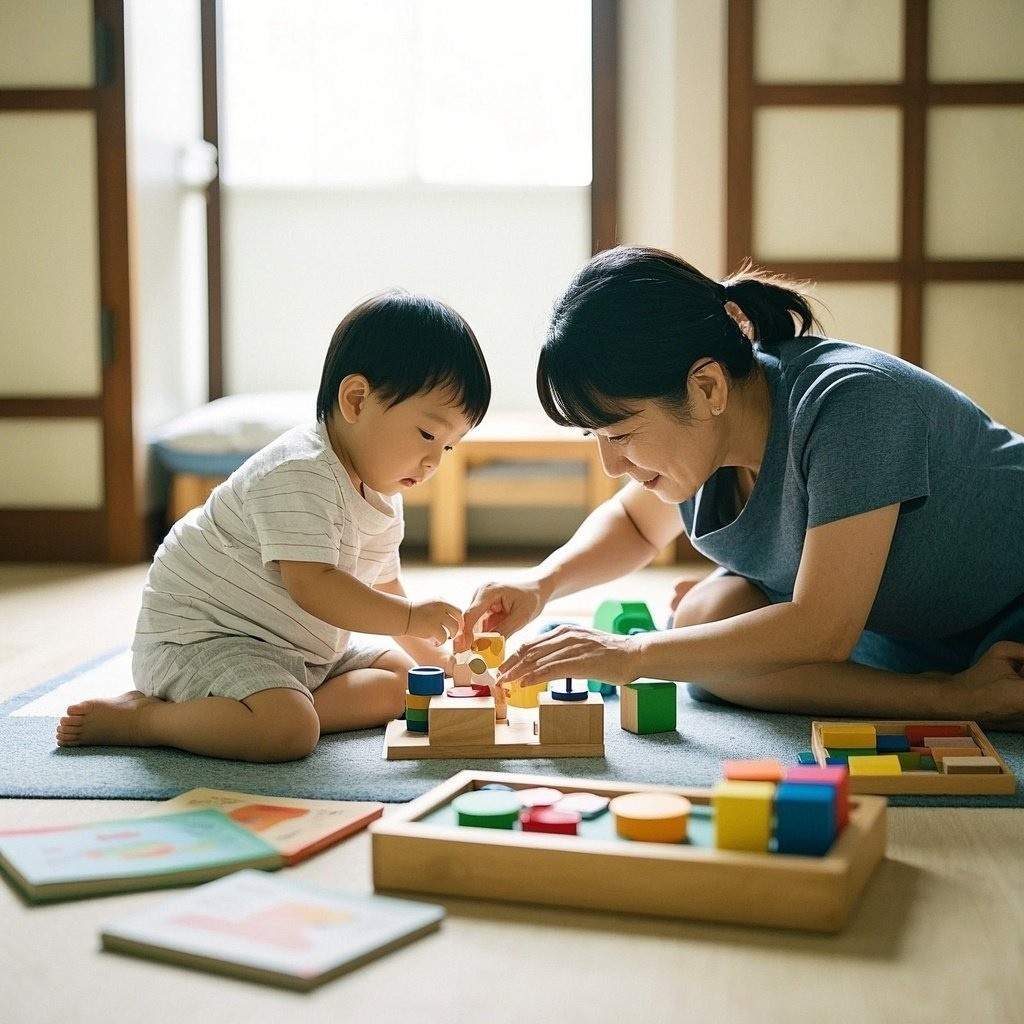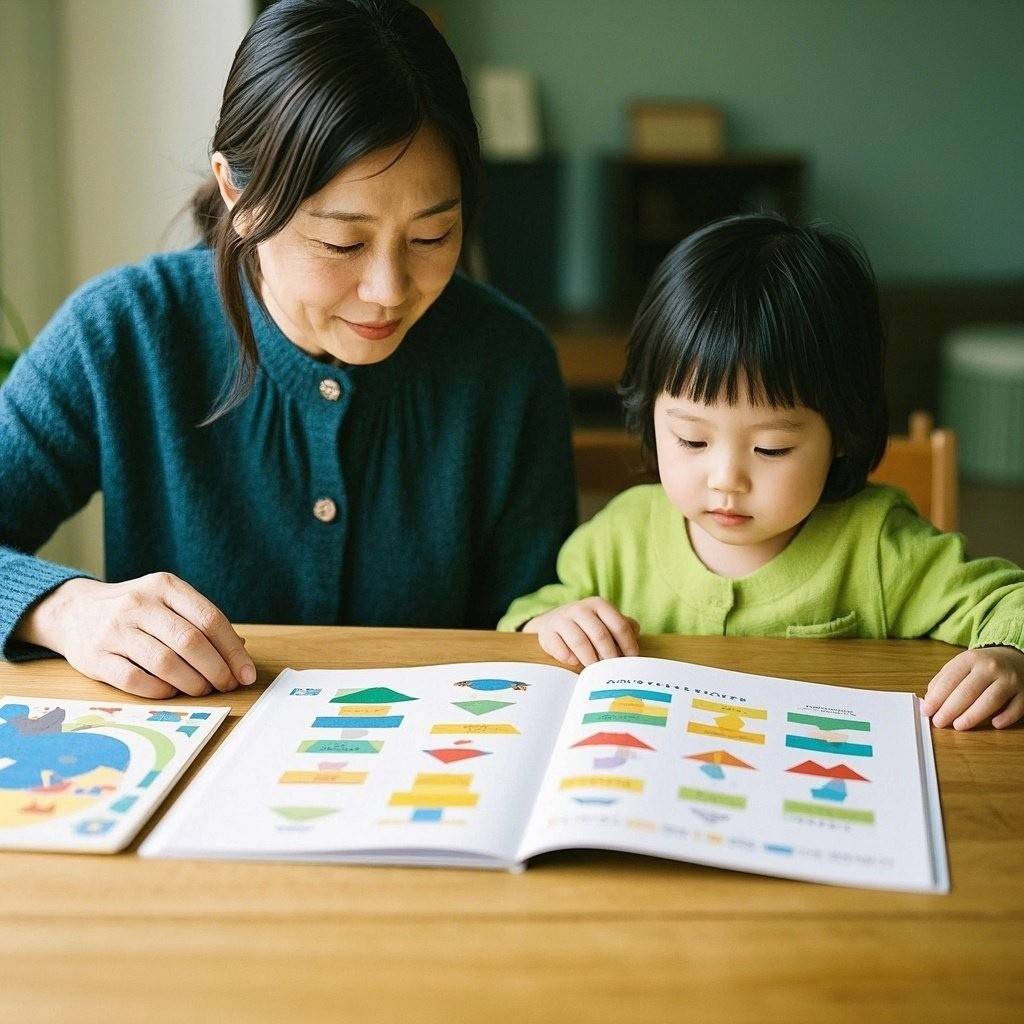As a parent, one of the biggest decisions you’ll make is choosing the right educational path for your child. Montessori education, known for its child-centered approach and emphasis on independence, creativity, and hands-on learning, has become a popular choice for many families. However, a common question parents ask is: What age to start Montessori? Understanding the different stages of Montessori education and how they align with your child’s developmental milestones can help you make an informed decision.
Understanding Montessori Education
The Montessori method, developed by Dr. Maria Montessori, focuses on fostering a child’s natural curiosity and love for learning. Unlike traditional schooling, Montessori classrooms encourage self-paced learning, exploration, and the development of practical life skills. The environment is designed to be child-led, with teachers acting as guides rather than authoritative figures. Because Montessori learning is deeply rooted in developmental psychology, the age at which a child starts can significantly impact their experience and progress.
Age Groups in Montessori Programs
Montessori programs are divided into age-based groups, each tailored to support specific developmental needs.
1. Infant & Toddler Programs (0-3 years)
For parents wondering what age to start Montessori, the journey can begin as early as infancy. Montessori infant and toddler programs, typically designed for children aged 0-3 years, focus on sensory exploration, movement, and early social interactions. At this stage, children are highly absorbent learners, and exposure to a structured environment can help build foundational skills like coordination, concentration, and early communication.
Benefits of starting Montessori at this age:
- Encourages independence from an early stage
- Develops fine and gross motor skills
- Promotes socialization and emotional growth
- Provides a stimulating, prepared environment for learning
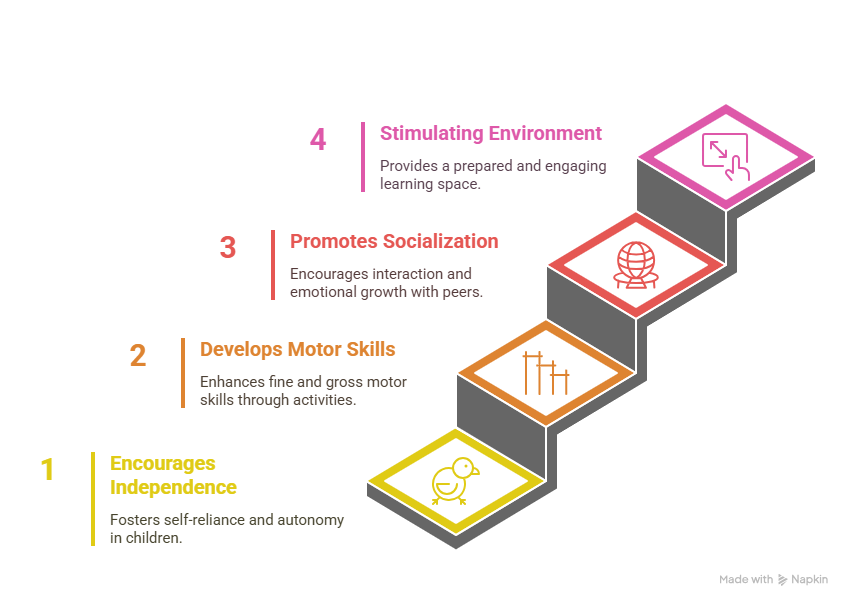
2. Primary Montessori (3-6 years)
The most common age to start Montessori is at 3 years old, which marks the beginning of the primary program. This stage is considered the heart of Montessori education, as children at this age are highly receptive to learning through practical life activities, sensorial materials, and early academic concepts.
Why 3 years old is an ideal starting age:
- Peak period for language and cognitive development
- Strengthens problem-solving and reasoning skills
- Enhances fine motor coordination through hands-on activities
- Encourages independence, responsibility, and self-discipline
At this stage, children work with specialized Montessori materials designed to develop skills in math, language, science, and cultural studies while reinforcing social interactions and cooperative learning.
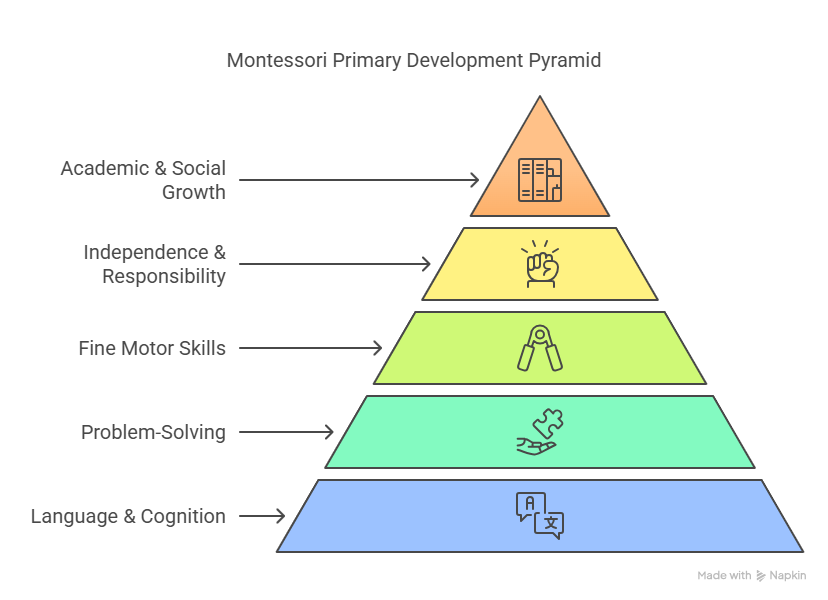
3. Elementary Montessori (6-12 years)
For parents who miss the primary window and wonder what age to start Montessori for older children, elementary programs offer a seamless transition. This stage builds on the foundation laid in the primary years, with an emphasis on critical thinking, collaboration, and real-world applications of learning.
Benefits of starting Montessori at the elementary level:
- Encourages a deeper understanding of abstract concepts
- Focuses on research-based, project-driven learning
- Nurtures creativity, leadership, and social skills
- Provides a more flexible, individualized learning pace
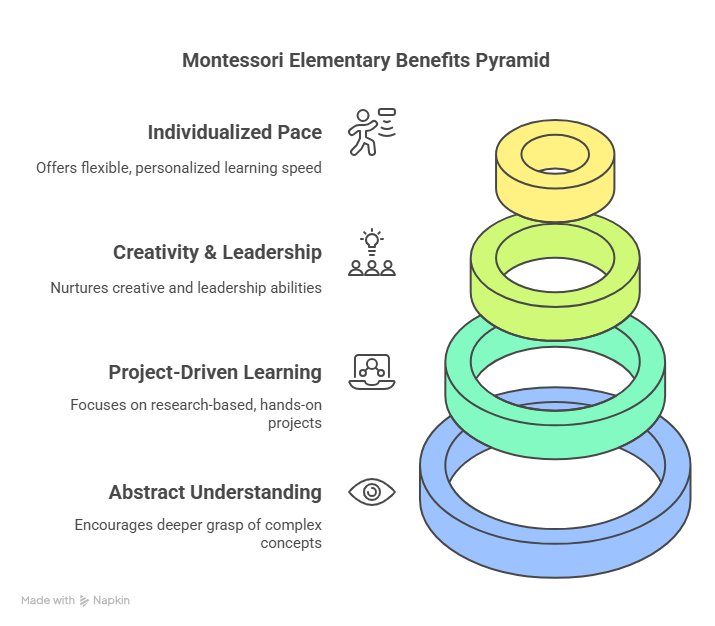
4. Adolescent Montessori (12+ years)
Though Montessori education is most commonly associated with early childhood, there are middle and high school programs that follow the Montessori philosophy. At this stage, students engage in real-world applications of knowledge, entrepreneurial projects, and community-based learning.
Advantages of starting Montessori at this level:
- Emphasizes real-world skills and leadership
- Encourages self-directed learning and responsibility
- Provides mentorship opportunities and hands-on experiences
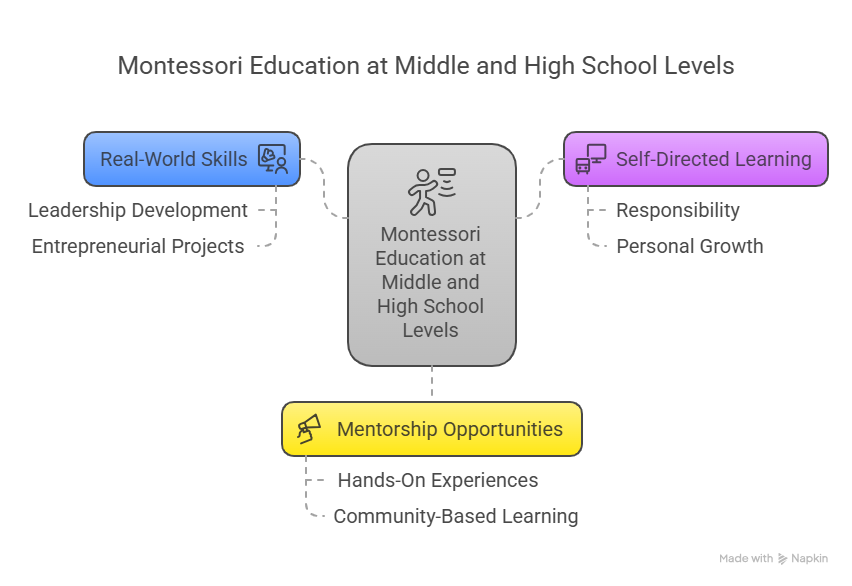
What Age is Best to Start Montessori?
So, what age to start Montessori for the best outcomes? The ideal age depends on your child’s readiness and your educational goals. Most Montessori educators agree that beginning at 3 years old offers the fullest benefits, as children absorb foundational concepts that prepare them for advanced learning. However, Montessori can be beneficial at any stage, as the method is designed to meet a child where they are developmentally.
Signs Your Child is Ready for Montessori:
- Shows curiosity about their environment
- Demonstrates independence in simple tasks
- Has a natural inclination to explore and learn
- Can follow basic instructions and engage in social interactions
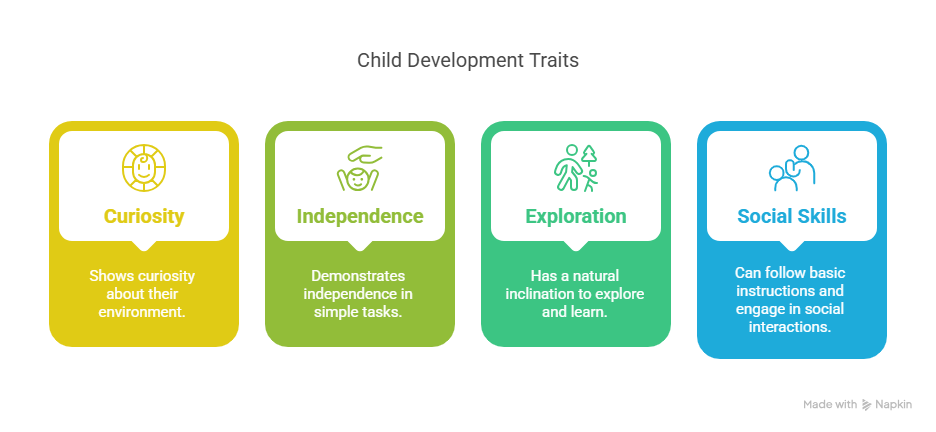
How to Decide When to Enroll Your Child
When deciding what age to start Montessori, consider the following factors:
- Developmental Readiness: Observe your child’s interest in learning, ability to focus, and social skills.
- School Availability: Some Montessori schools have limited openings for different age groups, so early enrollment planning is recommended.
- Home Environment: If your home already fosters independence and hands-on learning, your child may transition smoothly at a later age.
- Your Educational Goals: Decide if you want your child to experience the full Montessori curriculum from infancy or start at a later stage.
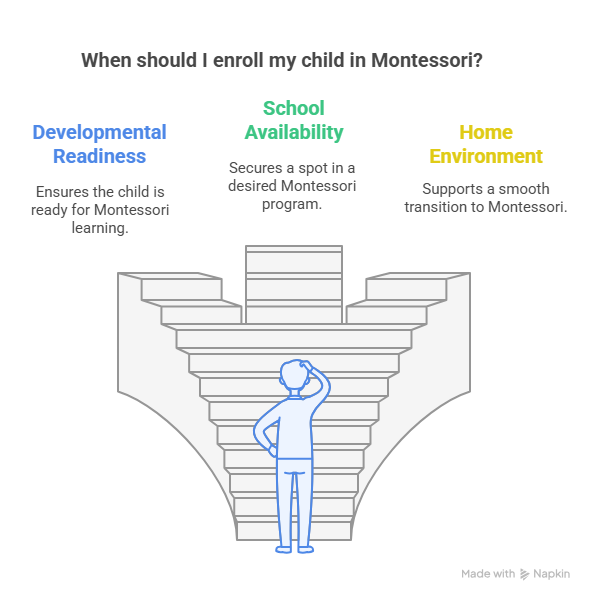
Conclusion
Ultimately, the answer to what age to start Montessori depends on your child’s individual needs and developmental stage. While 3 years old is the most common entry point, Montessori education is flexible and beneficial at any age. Whether your child begins as an infant, toddler, elementary student, or even in adolescence, the Montessori approach nurtures their natural abilities, fosters independence, and instills a lifelong love of learning.
If you’re considering Montessori for your child, visiting a Montessori school and observing a class in action can help you determine the best time to enroll. No matter when they start, Montessori’s unique, child-centered approach ensures that every child receives an enriching and empowering education.

